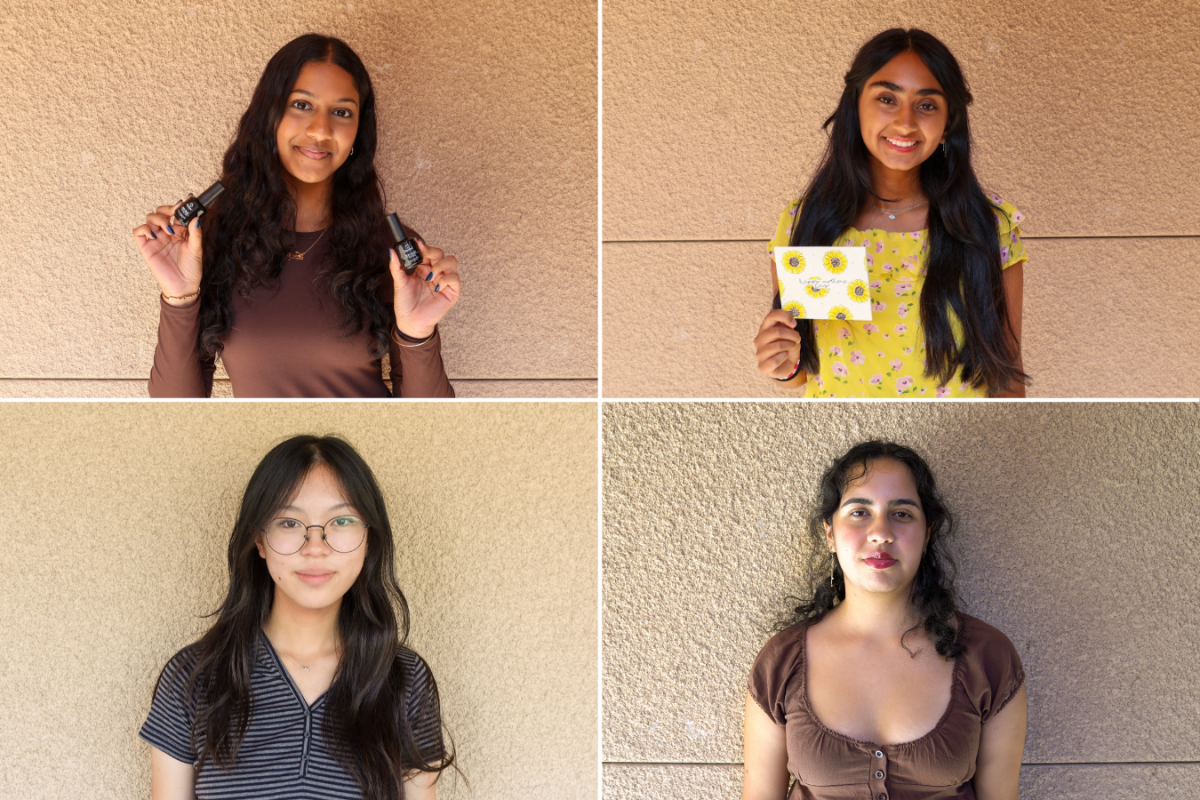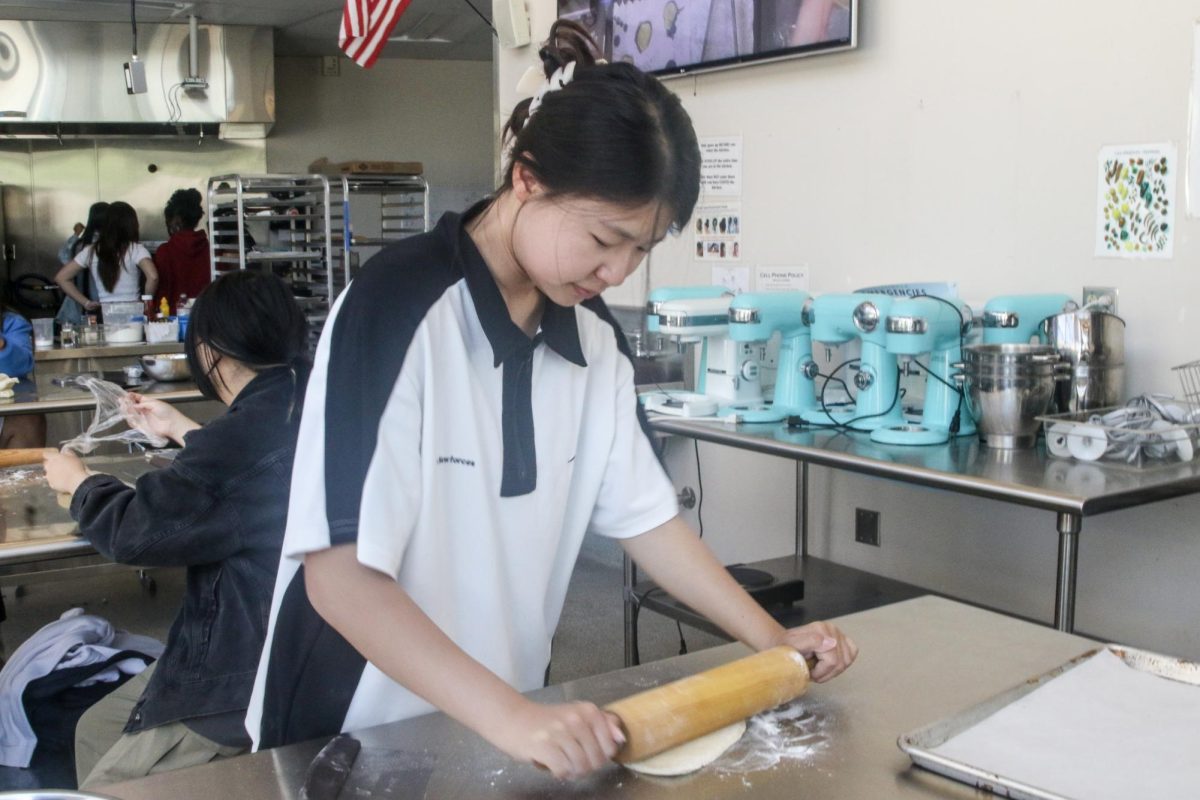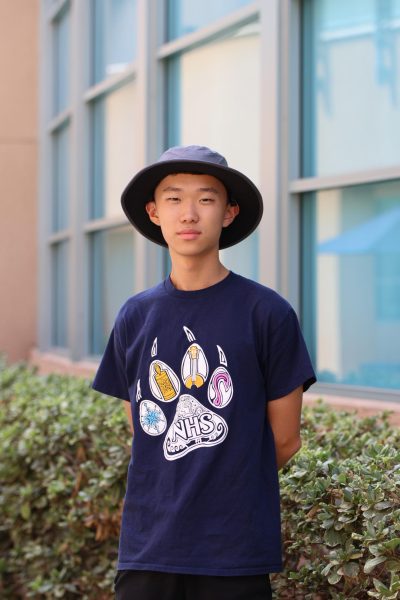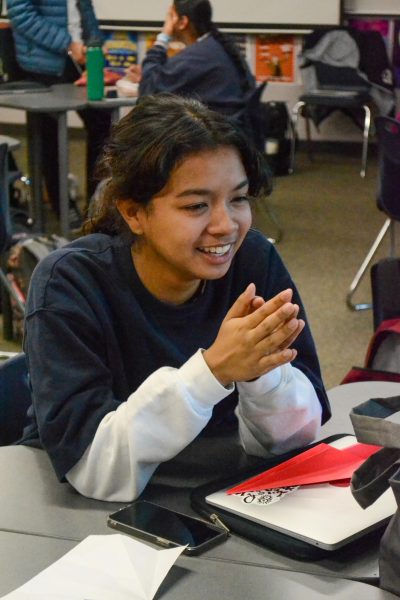When thinking of CTE classes, most would immediately show appreciation to the obvious choices. Computer graphics, video production and computer science are all fantastic classes in their own right, but niche classes are great options for those seeking to finish their CTE credits before graduation. Northwood’s culinary arts program is a great example.
In the Introduction to Culinary and the Advanced Culinary courses taught by chef Maggie Mullen, students can learn the basics of cooking: knife skills, kitchen safety and sanitation, mise en place (to set up everything before beginning meal prep) and how to write and copy recipes. Although the basis of the course is to learn technical cooking skills, many students also take away general lessons about how to interact with others and work as a team to finish tasks.
“Students learn to understand that we work together as groups and learn how to positively communicate,” Mullen said. “In the end, we get to eat our recipes, so they want to make sure that their team is making something the right way so they get to eat something that’s delicious.”
Students learn a wide variety of recipes in the program, especially in Advanced Culinary, which dives deeper into flavor development and sauce production than the introductory course. According to Mullen, a popular food for culinary students to make is bagels, as they can choose the flavors and toppings during the baking process. However, with a long list of potential dishes that students can cook in class, including fettuccine alfredo, meat dumplings, macaroni dishes and carne asada tacos, there’s something for everyone to enjoy. Similarly, using conventionally simple ingredients to make great dishes was an unexpected but very gratifying experience for many students.
“It’s basic, but our carrot unit where we got to braise and try different cooking techniques was really fun and interesting,” Introduction to Culinary student Sophomore Bradley Ly said. “Although it’s a simple ingredient, when we got to try the carrots after using different cooking techniques, they had contrasting flavor profiles. It was cool how simply changing the way we cook an ingredient can change the flavor by so much.”
Resources for ingredients and supplies are partly paid for by bake sale fundraisers that all culinary students contribute to. Students prepare several days in advance by planning their recipes and buying ingredients in bulk before cooking the food during their culinary periods. The most recent fundraiser took place on April 12 at Night of the Arts, where the program sold treats such as strawberry cream puffs and cheddar-chive scones.
Introduction to Culinary is open to all incoming sophomores, juniors and seniors; no prior skill or experience is necessary. Advanced Culinary is only available after taking the introductory class as a prerequisite and getting approval from Mullen. Anyone interested in taking the class is encouraged to consult their counselors and advisors when planning their schedules for next year.
“It’s been my favorite class last year and this year,” Advanced Culinary student junior Desirae Folayan said. “You learn a lot of teamwork and cooking skills. You retain that knowledge and you know that you’re going to use it in the future when you go off to college or whatever you do.”





















































